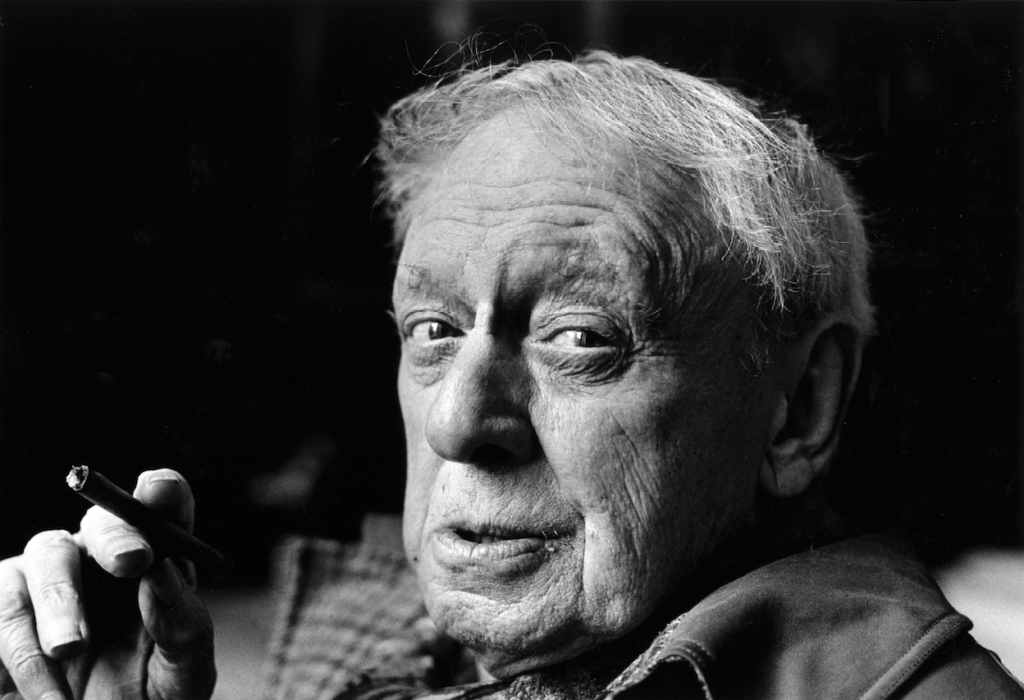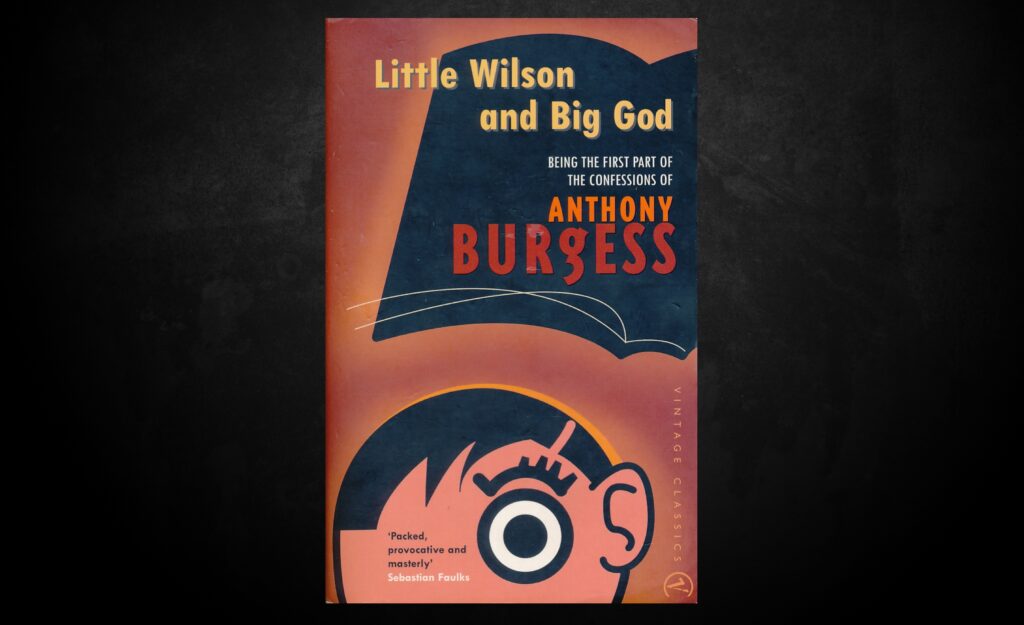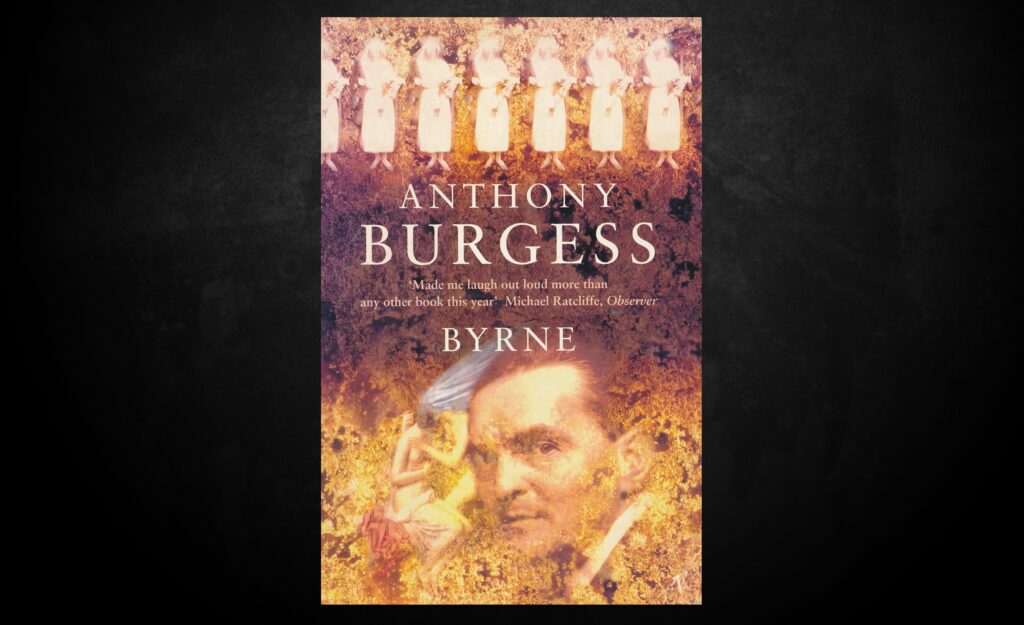Anthony Burgess: birthdays and anniversaries
-
Andrew Biswell
- 25th February 2024
-
category
- Blog Posts
In this birthday blog post, we consider some of the anniversaries celebrated by Anthony Burgess in his literature and music.
25 February is the 107th anniversary of Anthony Burgess’s birth in Harpurhey, north Manchester. His original name was John Anthony Burgess Wilson. As he writes in Little Wilson and Big God, the first volume of his autobiography, he ‘pulled the cracker of his name’ to create the pen-name ‘Anthony Burgess’ when his first novel, Time for a Tiger, was published in 1956.

Anniversaries were always an important feature of Burgess’s writing, even before his work had been professionally published. In 1955, while he was living in Malaya and teaching at Malay College in Kuala Kangsar, he wrote a ‘Jubilee Anthem for Malayan Boys’ Voices’, celebrating the 50th anniversary of Malay College, and set the poem to music. The text of this song appears in the edition of his Collected Poems, published by Carcanet in 2020:
What have we seen in fifty years?
Worlds rise, worlds decay.
Blasts of war have shattered our eyes, our ears,
And threats of war, as terrible as they,
Fed us with fears, blinded with useless tears.
The Collected Poems volume also contains birthday poems written for members of his family, including a villanelle for his first wife, Llewela, written in the 1960s.
In 1964 Burgess commemorated the 400th anniversary of Shakespeare’s birth with a novel, Nothing Like the Sun, written entirely in Elizabethan English. He celebrated the life and work of Christopher Marlowe, the poet and playwright who was born in the same year as Shakespeare, in another historical novel, A Dead Man in Deptford, published in 1993 to mark the 400th anniversary of Marlowe’s murder.
In 1982 Burgess was in commemoration mode again, this time on behalf of James Joyce and Igor Stravinsky, both of whom were born in 1882. Working with the director Eric Nilsson and the Swedish television company SVT, he made a 75-minute documentary, titled Make It New. Shot on location in Italy, Burgess’s ambitious and unconventional film chronicles the development of modernism in music and literature. A copy of the film has recently been donated to the Foundation in Manchester, where it is available for researchers to view.
Burgess celebrated his 60th birthday in 1977 by writing an autobiographical fragment, titled ‘You’ve Had Your Time: Being the Beginning of an Autobiography’ for a Canadian journal, the Malahat Review. This version of his life’s story differs in important respects from the account of his ancestry and childhood which appeared ten years later in Little Wilson and Big God. For example, in 1977 he claims that his mother’s family were Scottish Jacobites, whereas in 1987 he says that his mother’s background was solidly Lancashire. How her family lost its Scottish roots from one version to the next remains a mystery.
In the same year he completed the short first version of The Pianoplayers, a novel about the world of music halls and silent cinemas, in which both of his parents had worked before he was born. In the 1977 draft of this book, which runs to just 123 pages, the narrator, Ellen Henshaw, states that she was born on 25 February 1917 — the precise date of Burgess’s own birth. When he came to expand the novel for publication in 1986, he removed this significant detail from the text, perhaps wishing to distance himself from the character of Ellen.

Little Wilson and Big God was published in London by Heinemann and in New York by Weidenfeld & Nicolson on 25 February 1987. The book was accompanied by a fanfare of publicity, press interviews, and a BBC documentary titled Burgess at 70, produced and directed by Kevin Jackson.
On the day before his 70th birthday, 24 February, Burgess completed work on a substantial orchestral work titled Mr Burgess’s Almanack, featuring 12 movements plus an ‘Exordium’ and a ‘Postlude’. A recording of this birthday present to himself is available as a CD and download from Naxos. The 12 movements represent the number of notes in the chromatic scale and the number of months in the year. The movements of the Almanack also correspond to the 12 signs of the Zodiac, reflecting Burgess’s long-standing belief in astrology.
There are several other compositions linked to significant dates in the Burgess household. On 28 February 1990, a few days after his 73rd birthday, he completed a Quartet for Flute, Oboe, Cello and Piano in 3 movements. This is generally acknowledged to be one of his most accomplished chamber works.
On 25 September 1990 he was in Lugano, Switzerland, where he completed the Sinfonietta for Liana, a birthday gift for his second wife. The score runs to 88 pages and the work has a performance time of around 16 minutes. Elsewhere in the music collection, we find several short works written for the birthday of his son, Paolo Andrea, who was also a musician.
Burgess was diagnosed with inoperable lung cancer in October 1992, and he probably suspected that the birthday he celebrated in February 1993, his 76th, was likely to be his last. Characteristically, he was determined to carry on working after receiving a terminal diagnosis. The manuscript of his final novel, Byrne, posthumously published in 1995, indicated that the novel was finished on 24 February. Once again, it appears that he had celebrated a birthday by completing a major artistic project, although he would not survive to see it published.

Burgess’s work has continued to appear — in new editions, new recordings, new performances, and new broadcasts — in the 30 years since his death in 1993. Volumes of a collected edition of his fiction and non-fiction have been published by Manchester University Press since 2017 under the series title The Irwell Edition of the Works of Anthony Burgess.
The Burgess centenary in 2017 was marked by various events, including an exhibition and screenings of two artists’ films at the Whitworth Art Gallery, the first radio production of his 1972 translation of Oedipus the King, a performance of the Symphony in C by the BBC Philharmonic (as part of the Manchester International Festival), academic conferences in Budapest, Malta and Manchester, and a series of five radio essays broadcast on BBC Radio 3.
We can also look forward to further publications, exhibitions and other activities. This year there will be new stage productions of A Clockwork Orange in Germany, Italy, Bulgaria and Ukraine. Galileo Books have announced new editions of Nothing Like the Sun and Honey for the Bears. The Burgess Foundation will be focusing on Burgess’s historical novels, many of which are available in new editions.
And there will be other new publications — based on recently catalogued papers in the Foundation’s archive — details of which will be announced on the website and social media channels.
All of which brings to mind a quotation from The Clockwork Testament: ‘The work ends when the work ends / And not before and rarely after.’ Or, as the author says on the final page of his autobiography, ‘I may yet have my time.’
It only remains for us to raise a glass, and to wish Burgess, or his ghost, a happy 107th birthday.
This page contains some affiliate links. All purchases support the charitable work of the Burgess Foundation.


